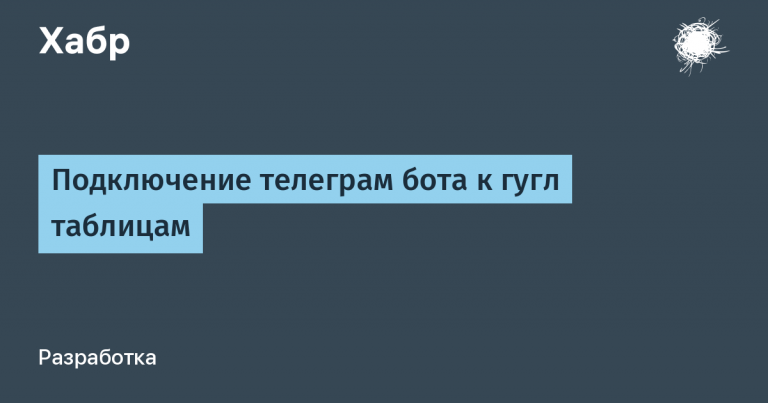4 Mistakes in My Data Analyst Resume That Caused a Less Than 1% Response Rate
Hi, my name is Nastya. Now I am engaged in data analytics, in particular search results at Wildberries, although most of my life I was far from IT. I worked in the hotel business for seven years, then, with the onset of the pandemic, I got a job in customer support in online retail. When my employer left Russia, I realized that I needed to master a profession that was not tied to geography and offline, and chose the course “Data Analyst” in the Workshop.
Before finding a job, I sent my resume to more than 400 companies. And I received an offer only after I corrected four typical beginner mistakes. I will tell you about them in this article.
What was my search strategy?
I found a job pretty quickly — in three months. Judging by the experience of my fellow students, finding a job after training usually takes from three to six months. For guys with specific requirements for an employer, the process could drag on for up to a year. For example, those who considered only remote vacancies with official employment and the opportunity to be outside the Russian Federation searched for a long time. Such offers are rare. The workshop conducted its own study on the employment of graduates of data analysis courses — its results can be viewed Here.
Although I had over 8 years of experience, I responded to junior positions, realizing that my background would only be of indirect use in the new field. I searched mainly on HH.ru using the keywords: “data analyst”, “data analyst”, “Data Analyst”. I set the filters: “remote”, “no experience” and “1-3 years of experience”. I focused on retail: I looked at vacancies in Ozon, Yandex Market, “Detsky Mir” and 12storeez.
I sent 150 responses every month, 450 in total. In the end, I received only three invitations to interviews, one of which resulted in employment. The first two months of searching were useless. Everything changed when I turned to an HR specialist at Praktikum for advice through the acceleration program.
What mistakes did I make?
Now I think I could have gotten a better result, but spent less time and effort. The conversion was low because I made a few mistakes at the beginning.
Mistake 1. Responded to vacancies of foreign companies
I thought my skills would be enough to find a job abroad, so I actively responded to job openings on LinkedIn. But not a single company offered to continue the conversation.
During a consultation with an HR specialist, I learned that in my situation, the chances of successfully finding employment abroad were minimal. To get a job, it is advisable to officially live in the country, have strong experience, or know someone in the company who can recommend you. In general, it is almost impossible for a junior without a residence permit and acquaintances among employees to get to the initial screening.
I changed my focus: I re-compiled my resume and started looking for work in Russian companies. The number of rejections decreased, resumes started to be viewed more often, although I still wasn't invited to interviews.
Mistake 2: Writing giant motivation letters
I read in various articles that recruiters often do not consider applications without cover letters. So I studied each company I sent my resume to, delved into their values and tried to explain in detail why I was right for the role. A lot of time and effort went into preparing the letters.
Later, the HR explained to me that Russian companies do not read long cover letters. Recruiters prefer short and clear messages because the flow of applications, especially in IT, is very large.
We shortened my cover letter to three paragraphs: I introduced myself, listed my skills, included links to projects (this is important), and duplicated my contacts.
Mistake 3. Described all work experience in the resume
I knew that no one would read a long resume, so I tried to make it short and informative. At the same time, I thought that all my experience was very valuable, and I even told about working at the reception. As a result, the resume was one and a half pages long.
We shortened the resume to one page: removed 5 years of experience that was irrelevant. Left only relevant projects and positions, for example, we decided not to delete the line about working in the sales department, because I had to deal with data there.
At that moment, I was in Kazakhstan, and the HR specialist advised me to write that I was ready to receive a salary in rubles, wanted to work remotely, and could be in touch Moscow time — recruiters pay attention to the coincidence of the candidate's conditions and requests. Just in case, we indicated the reason for changing profession in the resume (in my case, the reason was external factors).
The projects I completed as part of the course were included in the work experience. I chose two projects that were most relevant to retail and marketplaces and presented them as project activities, without mentioning that they were courses.
It is advisable to also do pet projects so that the resume looks more independent and original. In my case, the Practicum projects and experience in “Workshop”.
Mistake 4: Listing functions and not digitizing the results
I described my achievements, but did not provide specific numbers. I wrote something like: “I implemented a tool that was useful to everyone,” without specifying how this affected the business result. I also listed my functions at each place of work, which is why the resume turned out to be overloaded, but not selling.
After the consultation, everything had to be reformulated. About working in the hotel business, I wrote that I analyzed competitors' rates and this helped us choose more relevant rates for our hotel, attract corporate clients and increase revenue by 30%. In customer support, I analyzed the case flow, which allowed us to improve the team's work and increase customer satisfaction by 5 points.
The main focus was on my work on dashboards for the charity foundation “Arithmetic of Good” as part of the “Workshop”. The consultant advised me to describe in more detail what exactly I did and how it helped the customer, and to indicate the tools used. This was asked in detail during the interview.
What I did right
There were some good decisions in my job search strategy and interview preparation.
Set up notifications to receive new vacancies immediately
I searched for a job mainly on HeadHunter. In order not to miss new vacancies, I set up notifications and subscribed to a chatbot that sent me information about new offers immediately after they were published. They say it is important to be in the first hundred who responded, since recruiters rarely get to resumes sent later.
Tried different keywords
After working with an HR consultant, I began to send my resume more selectively, only to those vacancies that exactly matched my skills. I looked for positions related to data analysis, which required SQL, Python, and work with libraries.
That's how I came across a vacancy for a “Search Engine Optimization Specialist”. Not to be confused with an SEO specialist. If an SEO specialist works to improve the visibility of websites in search engines, then I work to improve the search within Wildberries: I analyze product data and make the results as relevant as possible for users.
I watched the interview broadcasts
I joined other students' mock interviews as a spectator. This helped me understand what employers ask most often, what mistakes candidates make. I answered along with them, wrote down interesting questions and analyzed them myself. I felt more confident in a real interview.
I reviewed the course materials
I consolidated the base that I was given in the course. I read articles, watched webinars. The knowledge was useful at all stages: in the test task, at the interview and at work. For example, the test had questions on SQL and Python, I quickly coped with it, and based on the results of the test, I was offered a second vacancy – a middle role in the same company.
At the interview, my skills were tested by two leads at once – they asked a lot of technical questions. I received an offer for a junior role, since I had no real experience in data analytics, but it was nice that I was considered for a higher position.
For the first three months, I worked only with Google Sheets and wondered why my hard drives were checked so thoroughly. After six months, I started working with other tools and realized that my studies were not in vain. Our team is developing, interaction is becoming complex, new tasks appear from leads. If you can conduct complex analysis or download a large amount of data from the database with a simple request already at the start, this sets you apart from other newbies.





